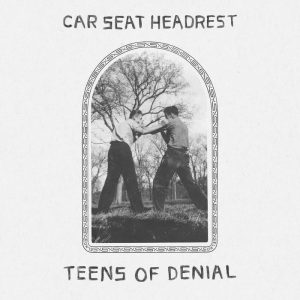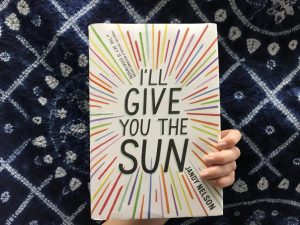Album Review: “Correspondence (A Fiction)” by Levi the Poet
November 27, 2017
With Poetry Out Loud approaching fast, you may want to listen to some other forms of spoken word. Levi the Poet takes his narrative words to music in his most recent album: Correspondence (A Fiction), what Spotify describes as a “Wes Anderson meets Herman Melville’s Moby Dick mythology.”
“My love…” Opening with the light playing of piano and the sounds of rain, “Chapter One: When Hearts are Large” begins. A beautiful reminiscence of love is illustrated. Love described as if Shakespeare was living it: violins accompany the piano as he tells the tale of a “midsummer’s night eve.” Then it expresses childhood love: playing cowboys and indians when girls still had cooties, sneaking off with her to avoid the teasing of your friends. “Chapter One” closes with the violin and piano finishing their melody and the final line: “My Dove, with love and sincerity and all that I have to offer, Your Queen.”
“My everything…” “Chapter Two: Tombstone Love Note” has a more jarring introduction than the first. The piano rhythm is constant and rapid as it backs Levi’s first, muted but then, louder voice. He describes a bottled letter from her on a beach, smelling “of sea salt and [her] father’s favorite poison.” Passionate love is described as molten lava erupting from a volcano and contrasted to a dormant, coffin-like crater of dying love.
“Dear Diary…” “Chapter Three: The Great American Game” was the first I heard from Levi the Poet and my favorite of the twelve chapters. It truly begins at the end of “Chapter Two” as a letter from the narrator’s dead father to the mother he never met. Initially, the tone is more upbeat, almost as if the piano keys alone are telling the story of one’s childhood. Horns erupt, causing the song to become more intense. A break in the song occurs with the line “age is an overexposed photo that the memories can’t mend,” the instrumentals quieting before coming back in with a clash of sound. The song eventually comes to a close with the gradual diminishing in instrumentals, closing with the final line: “idle hands build nothing that you can call your own.”
I will leave the rest of the chapters to be a surprise, and if you listen hard enough, you may learn something (or find a senior quote like I did). And even if spoken word isn’t something that you necessarily like, you can always enjoy the instrumental version of the album.












